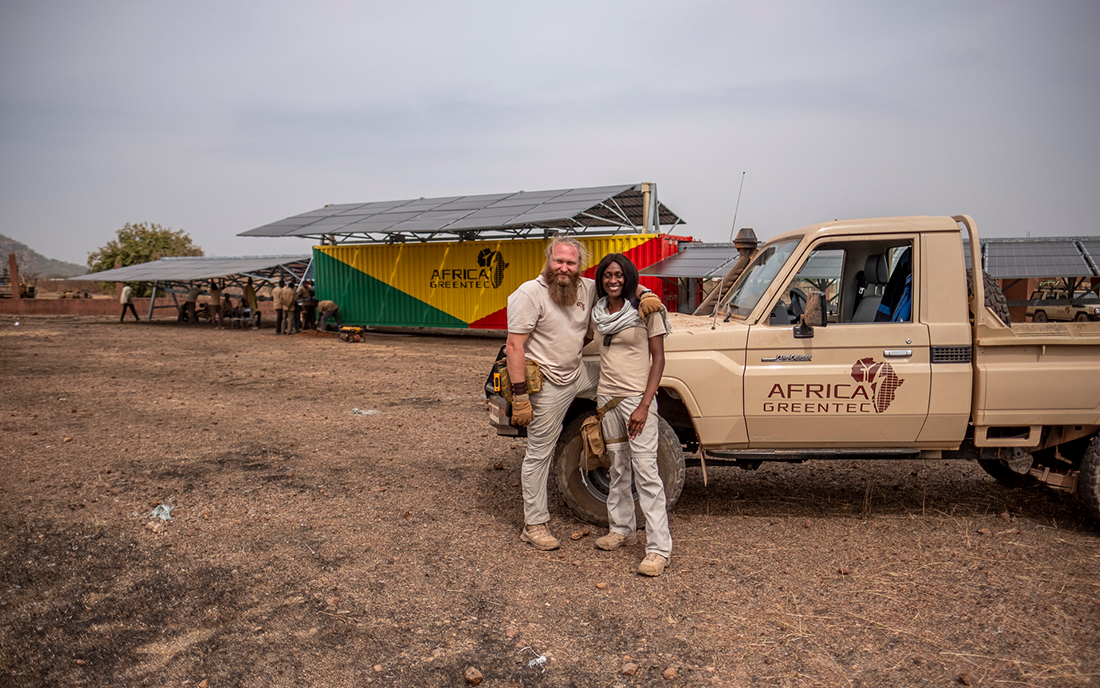The Social Entrepreneurship Highlights of 2020

Many of us would have liked a reset button to start this year over again – without the virus. We take a positive look back and present the social entrepreneurship highlights which impressed us most in 2020.
WirVsVirus Hackathon
The creators of the WirVsVirus Hackathon mobilised almost 30,000 people in March to work together on digital solutions to the Corona crisis: 1,500 in number. The hackathon not only showed the enormous commitment and power of the social entrepreneurship sector. It was also an example of successful cooperation between very different actors, from individuals to the federal government or state administrations to the welfare sector, new bonds were forged. In a follow-up process, a reduced number of solutions were further developed and clustered into relevant thematic areas, for example with regard to solutions for nursing homes and senior citizens, hospitals and doctors or schools and citizens: Read more here in the catalogue.
Social Entrepreneurship makes it into the Bundestag twice
So far, there is no direct contact person in the Federal Government, no ministry responsible for social entrepreneurship. It is therefore all the more gratifying that – not least due to the successful efforts of the Social Entrepreneurship Network Germany (SEND e.V.) – the Bundestag has addressed the topic of social entrepreneurship twice in 2020. What’s more, almost all parties agree in principle that social innovations need to be better promoted alongside technological innovations.

The question of whether it would not also be possible in Germany to use the funds of nameless accounts to develop the social entrepreneurship sector was also discussed. A motion of the FDP as well as a small question of the parliamentary group of the Greens/Bündnis90 aimed at this. The British Labour government already showed how this can work with its Big Society Fund in 2005.
Perhaps the most courageous social enterprise: Africa GreenTec invests in countries others give a wide berth to
All the figures about how positively the market for impact-oriented investments that do good for the world has developed in the last 10 years hide the fact that the poorest regions and crisis areas of the world are usually left out.
We are impressed that Africa GreenTec, a market-oriented social business from near Frankfurt, ventures into countries that almost all investors give a wide berth to with its holistic energy solutions. And it is doing so with a remarkable investment of capital. The company wants to invest a three-digit million amount in the region in the coming years. The current crowdfunding campaign is a first step in this direction.

After its successes, first and foremost in Mali, Africa GreenTec has set the course in 2020 to expand further in Niger and Chad. It is worth noting that on the Human Development Index, Chad is ranked 187th and Niger 189th out of a total of 190. From the point of view of Torsten and Aida Schreiber, the founders of Africa GreenTec, this is – despite all the challenges – less a problem than an incredible opportunity. Because every village is teeming with young people who want to make a difference, become active entrepreneurs, build something.
The courageous approach is rewarded by the fans of Africa GreenTec. The company has already mobilised more than 500 investors through its current crowdinvestment campaign, who have provided a total of well over one million euros.
A multi-million exit for Nebenan.de
In the summer of 2020, the online neighbourhood network Nebenan.de sold the majority of its shares to the Munich-based Burda Media Group for a sum in the double-digit millions, stirring up the impact scene. For it is unusual, even unethical in the view of some commentators, to sell a social enterprise – and that to a group that is part of the mainstream economy.

However, it shows that social enterprises are not only active in small niches, but can also position themselves successfully in mainstream markets. And this message carries weight.
Nebenan.de had decided to finance its growth through external investors, including several financial investors who have now been partly replaced by Burda, and – this should not be overlooked – to build up a charitable Nebenan.de foundation in parallel. Other social enterprises like us as Gexsi have placed their shares in a foundation from the outset or give a foundation like the Purpose Foundation veto rights that exclude the sale of shares to outsiders, which, however, tends to make access to capital more difficult.
Which way is right or wrong can hardly be determined universally. What is certain, however, is that it would be desirable for more and more investors to invest in an impact-oriented manner, regardless of whether they participate in a social enterprise or a for-profit company, in order to gradually transform it into a sustainable enterprise. A legal form tailored to growth-oriented social enterprises like the Benefit Corporation in the USA and Italy or the Community Interest Company in Great Britain does not yet exist in Germany. It might have been something for Nebenan.de in order to rule out a dilution of the mission when external investors become involved.
A solid infrastructure for social entrepreneurs
The social entrepreneurship scene in Germany and Europe is growing and growing. This is not least due to new and improved offers.
- The Impact Factor in Duisburg, which started in 2019, has already accompanied 4 “batches” with about 20 to 30 social entrepreneurs each. It is aimed both at young start-ups whose business model still needs to be shaped (“create-ups”) and at founders who are facing the challenge of growing their still young company (“scale-ups”). The Impact Factory is not the first mentoring programme to exist in this country. In recent years, Social Impact Labs, Impact Hubs and other initiatives such as Social Innovation Labs have sprung up in more and more cities in Germany, Austria and Switzerland, offering a wealth of services and outstanding programmes. We have come to appreciate the Impact Factory for its particularly intensive programme tailored to the needs of individual start-ups.
- The Social Entrepreneurship Network Germany doubled its membership in 2020 and now represents more than 600 social entrepreneurs. There are now also regional groups in the majority of the federal states.
Our Gexsi Highlights

As an organisation whose mission is to strengthen the social entrepreneurship sector, we can look back on a number of highlights in 2020, for example:
- our Impact Challenges together with WHU Business School’s SensAbility in the summer and the Enactus Startup Accelerator Pitch in autumn.
- the launch of our regionally adapted Gexsi web searches in Switzerland, North Rhine-Westphalia and Baden-Württemberg. Those who search in these regions automatically support local social innovators – usually with supra-regional appeal.
- the launch of our Gexsi Magazine, in which we not only present the social entrepreneurship projects we support, but also depict, comment on or classify developments in the sector both nationally and internationally – weekly!
We wish all our readers a healthy and happy year 2021!
Become part of a community, which positively changes the world!
Set a sign and make Gexsi your search engine!
![]() Gexsi – the search engine for a better world
Gexsi – the search engine for a better world
Your search generates money for projects which make the world a better place.

